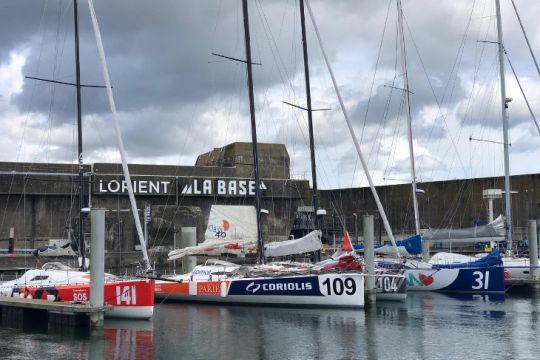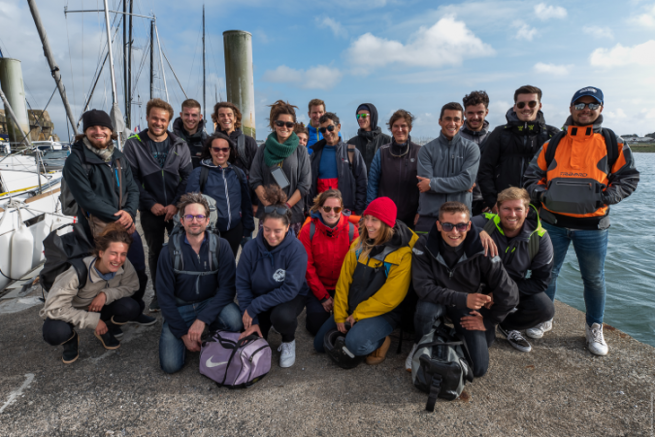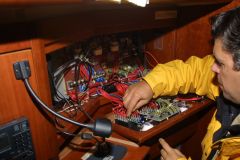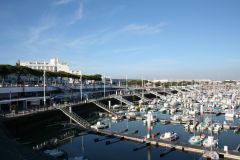A generalist degree in yachting
Conducted within the University of Southern Brittany, the Nautical and Yachting Proficiency Degree is part of the classic university LMD scheme, with an applied vision specific to so-called professional diplomas. Each year, about twenty students follow the program in Lorient. It is divided between a period of courses until February and an internship from March onwards which prepares the nautical season. "Usually after the season it goes straight into employment. Some continue on to college, but that's rare." explains Christophe Baley, head of the professional license.
The contents of the course cover all aspects of the boating industry. 4 main blocks of teaching are addressed:
- nautical and port activities, through their functions, their organization and their uses
- management and project management, with a focus on eco-design, standards and product design in general
- technical aspects, around motorization, materials, geology
- support subjects such as marketing, accounting or communication

"We don't make specialists, but they have to be able to interact with technicians. There are many conferences with professional actors and a 150-hour project for which the ideas come from the companies. We have had subjects such as the role of a harbour master's office, sculling or the environmental impact of ocean racing. The goal is to feed the collective thinking." summarizes the training manager.
A local nautical need
Launched in 2008, the Lorient Nautical pro degree was born from a request from the Morbihan Departmental Council. A study conducted with the CCI had demonstrated the potential of the local nautical industry to bring life to sites such as the Gulf of Morbihan or La Trinité sur Mer, with reliable jobs over time. A training course was therefore set up.

Although it relies on important local players such as Sellor or the Compagnie des Ports du Morbihan, the outlets for the professional license and its diploma are national.
Various jobs in the nautical industry
Voluntarily generalist, the professional degree from Lorient leads to a wide range of jobs. "Many students work in marinas, services, companies and chandleries. Shipbuilding is less important," concludes Christophe Baley.














